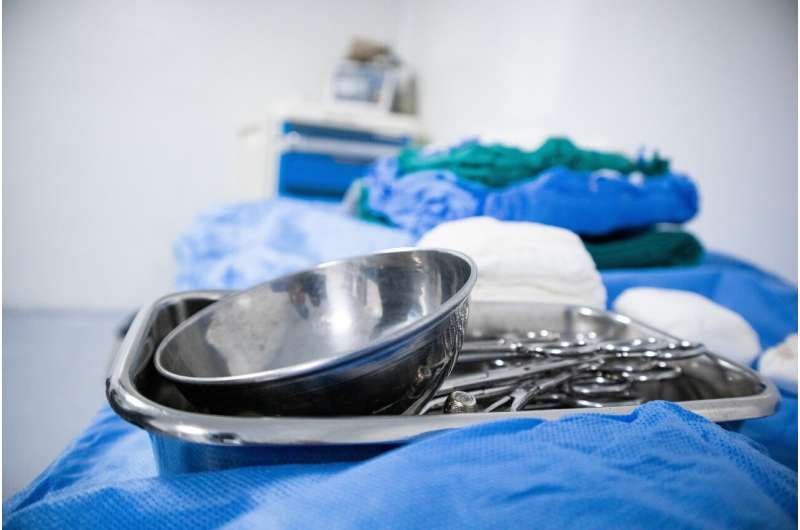This article has been reviewed according to Science X's editorial process and policies. Editors have highlighted the following attributes while ensuring the content's credibility:
fact-checked
trusted source
proofread
Routinely changing surgical gloves and instruments is cost-effective and safer, finds trial

Surgeons who routinely change surgical gloves and instruments are incurring similar costs to those using the same equipment, a new study has found.
The economic evaluation follows a clinical trial conducted at 80 hospitals in Benin, Ghana, India, Mexico, Nigeria, Rwanda, and South Africa which established that routine change of gloves and instruments reduces surgical site infections (SSIs) by 13%.
The evaluation, published by The Lancet Global Health, serves as a follow-up to a clinical trial to assess the economic implications of implementing the findings from the trial. It compares the costs and SSIs associated with routine change of gloves and instruments versus current surgical practice of not changing them.
Among the seven low and middle-income countries that took part in the ChEETAh clinical trial, the economic evaluation calculated that on average the cost of the intervention of US$259.92 compared with $261.10 for the current practice of reusing gloves and instruments.
Lead author Mr. Mwayi Kachapila, a Health Economist from the University of Birmingham, said, "It is very important for health care programs to be both effective and cost-effective. SSIs are associated with high treatment costs especially in low-and middle-income countries (LMICs) and this intervention will go a long way to reduce the cost burden to patients, health care systems, and societies.
"Lowering SSIs not only minimizes patient recovery time but also significantly alleviates financial burdens, especially in LMICs where patients often bear the cost of their treatment. Additionally, this initiative aids in freeing up hospital bed space."
Tracy Roberts, Professor of Health Economics at the University of Birmingham who oversaw the economic evaluation said, "In resource-constrained settings, relatively small shifts in routines and practices can have wide and important benefits when there is a generated saving in resource that can be used elsewhere. The paper shows how the simple modeling of the alternative approaches with their respective costs, can prove useful to decision makers.
"This is particularly beneficial when trial cost data are insufficient, incorporating relevant data from the literature can enhance robustness of the analysis."
More information: Edward Bywater et al, Routine sterile glove and instrument change at the time of abdominal wound closure to prevent surgical site infection (ChEETAh): a model-based cost-effectiveness analysis of a pragmatic, cluster-randomised trial in seven low-income and middle-income countries, The Lancet Global Health (2024). DOI: 10.1016/S2214-109X(23)00538-7





















